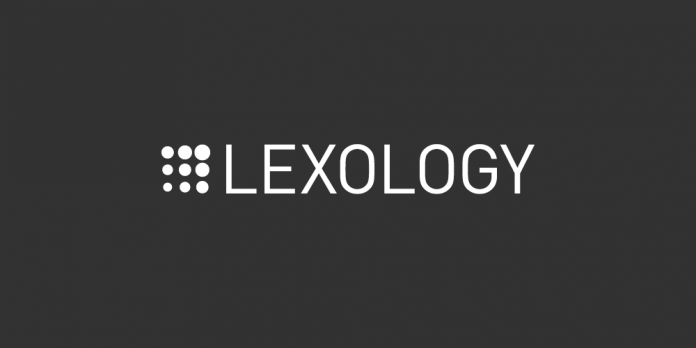Owning NFTs is not the same as owning underlying digital assets
Purchasing NFTs does not confer underlying copyright in digital works
Displaying, copying or minting digital artworks may constitute copyright infringement
Comment
Non-fungible tokens (NFTs) are the latest development in disruptive blockchain technology innovations, this time in the world of digital art, collectibles and even luxury goods. This article is part of a series exploring the evolving IP landscape in the internet, digital media and e-commerce industries.
Owning NFTs is not the same as owning underlying digital assets
Purchasers of NFTs should be aware that even though ownership of the authentic digital asset is established through ownership of the NFT, the digital asset itself may be viewed, downloaded and enjoyed by anyone (for example, the artwork sold on Christie’s can be found online). In fact, Christie’s conditions of sale clearly states as follows:
Your purchase of the lot does not provide any rights, express or implied, in (including, without limitation, any copyrights or other intellectual property rights in and to) the digital asset underlying the NFT.
Drawing parallels from the physical art world, owning an NFT is like owning a unique print of a piece of art signed by the artist, while multiple other individuals may simultaneously own identical unsigned prints. As discussed below, the artist retains the copyright in the underlying work.
Purchasing NFTs does not confer underlying copyright in digital works
In some jurisdictions, for copyright to be transferred to the purchaser, the copyright owner of the work must provide an express written assignment. Such an assignment could optionally be included in the smart contract executed to mint the NFT, but this has generally not been the case to date. If the purchaser desires the copyright, due diligence will have to be conducted to ensure the contract includes such rights. As noted above, the transfer of rights may also be clarified by the conditions of sale of the auction house, which are separate from the contract attached to the NFT. For example, Christie’s states the rights that a purchaser does not obtain:
you do not have the right to distribute, or otherwise commercialize the digital asset, or to represent or imply any sort of sponsorship, endorsement, affiliation, or other relationship with the seller and/or the creator of the digital asset without the prior authorization of the seller or the party(ies) that holds such rights.
Displaying, copying or minting digital artworks may constitute copyright infringement
The digital and accessible nature of NFTs creates a risk of inadvertently infringing the underlying copyright of the digital work. Like any online image, NFTs may be physically printed, displayed in digital frames or shared on online forums with ease, after accessing the digital work through the link specified in the NFT transaction (which is open to inspection on the Ethereum blockchain by anyone – for example, see the transaction for the artwork sold on Christie’s). It is an infringement to do with a work an act that only the copyright owner has the right to do unless such acts are authorised or fall within a fair dealing exception. Further, individuals may believe that a digital work that they possess (but did not author) can be minted and sold as an NFT. However, this would also likely infringe the copyright since by doing so they would be distributing the work and making it accessible to the public without authorisation.
Comment
NFTs are creating an emerging market for artists and collectors to sell their unique “signed” digital assets in a manner that also makes unsigned copies available to the public. Sellers and purchasers of NFTs should ensure that they understand the copyright implications of the transaction. In addition, any member of the public seeking to make any significant use of an NFT image (eg, sell, distribute or archive copies) should seek competent legal advice to ensure they have addressed any issues of copyright.
For further information on this topic please contact Daniel Anthony or Akiv Jhirad at Smart & Biggar by telephone (+1 613 232 2486) or email ([email protected] or [email protected]). The Smart & Biggar website can be accessed at www.smartbiggar.ca.
Credit: Source link






















 Bitcoin
Bitcoin  Ethereum
Ethereum  Tether
Tether  Solana
Solana  USDC
USDC  Lido Staked Ether
Lido Staked Ether  XRP
XRP  Toncoin
Toncoin  Dogecoin
Dogecoin  Cardano
Cardano  Shiba Inu
Shiba Inu  Avalanche
Avalanche  Wrapped Bitcoin
Wrapped Bitcoin  TRON
TRON  Bitcoin Cash
Bitcoin Cash  Polkadot
Polkadot  Chainlink
Chainlink  Polygon
Polygon  Internet Computer
Internet Computer  NEAR Protocol
NEAR Protocol  Litecoin
Litecoin  Uniswap
Uniswap  LEO Token
LEO Token  Dai
Dai  Aptos
Aptos  Ethereum Classic
Ethereum Classic  Mantle
Mantle  First Digital USD
First Digital USD  Stacks
Stacks  Filecoin
Filecoin  Cronos
Cronos  OKB
OKB  Stellar
Stellar  Cosmos Hub
Cosmos Hub  Render
Render  Renzo Restaked ETH
Renzo Restaked ETH  Bittensor
Bittensor  Arbitrum
Arbitrum  Immutable
Immutable  Hedera
Hedera  dogwifhat
dogwifhat  Maker
Maker  Injective
Injective  The Graph
The Graph  Ethena USDe
Ethena USDe  Optimism
Optimism  Wrapped eETH
Wrapped eETH 
